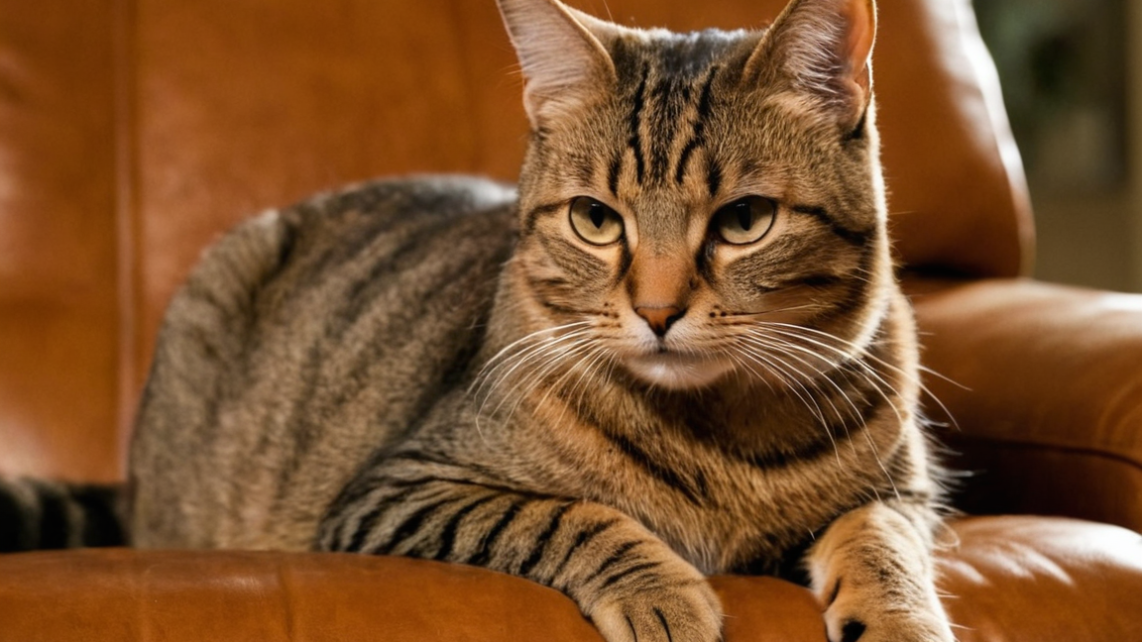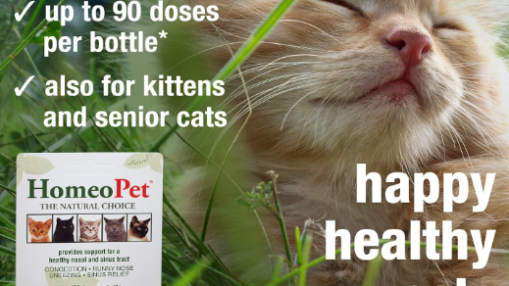Inflammation in cats is a natural response of the immune system to injury, infection, or illness. It’s a defensive mechanism where the body works to heal damaged tissues.
Table of Contents
While short-term inflammation can be beneficial, chronic inflammation is harmful and can lead to long-term health issues like arthritis or even more serious diseases like inflammatory bowel disease (IBD) or pancreatitis.
One of the biggest challenges with inflammation in cats is that they are often masters at hiding pain. Pet owners need to stay vigilant and observant to detect any signs of discomfort or changes in their cat’s behavior, such as decreased activity, reluctance to jump, or a sudden change in grooming habits.
Chronic inflammation can affect various parts of the body, including joints, the digestive system, and the respiratory system. Identifying the underlying cause of the inflammation is crucial, and this is where both veterinary care and natural anti-inflammatory remedies can play a significant role.
What Causes Inflammation in Cats?
Inflammation in cats can arise due to multiple factors, including infections, injuries, allergies, or autoimmune disorders. Cats may develop inflammation in their joints, digestive tract, or other internal organs, depending on the trigger. External factors such as stress, a poor diet, or exposure to environmental toxins can exacerbate the problem.
Arthritis is one of the most common inflammation-related diseases in aging cats. This condition occurs when the protective cartilage between joints breaks down, leading to pain and swelling. Digestive issues such as IBD can also cause chronic inflammation in cats, triggered by allergens or an imbalance in gut bacteria.
Symptoms of Inflammation in Cats
Cats with inflammation may exhibit a range of symptoms depending on the affected area. For joint-related inflammation, limping, stiffness, or hesitation to move are common indicators. Cats may also vocalize more when they are in pain. In the case of inflammation in the digestive system, symptoms such as vomiting, diarrhea, or a lack of appetite can signal an issue. Chronic inflammation can result in weight loss, lethargy, and decreased grooming, all of which are signs that a cat may be in distress.
Why Choose Natural Anti-Inflammatories for Cats?
Pet owners often seek natural alternatives to pharmaceutical treatments because they can offer relief without some of the potential side effects associated with conventional medications. Natural anti-inflammatories are typically gentler on a cat’s liver and kidneys, which can be particularly important for aging cats or those with existing health conditions.
Benefits of Natural Remedies over Pharmaceuticals
While pharmaceutical anti-inflammatories can be effective, they sometimes come with risks such as gastrointestinal issues, liver damage, or interactions with other medications. Natural remedies can offer a safer, more sustainable option for long-term treatment, focusing on reducing inflammation without causing harm to other parts of the body.
Natural remedies also often work to address the root cause of inflammation, such as dietary deficiencies or environmental factors, instead of merely masking the symptoms.
Common Natural Anti-Inflammatory Substances
There are several natural anti-inflammatory substances that can be safely used in cats, under the guidance of a veterinarian. These include herbs, fatty acids, and other natural compounds known for their anti-inflammatory properties. Some of these have been used for centuries in traditional medicine to reduce inflammation and promote healing.
Top Natural Anti-Inflammatories for Cats
Turmeric

Turmeric, a popular spice in Eastern medicine, is a powerful natural anti-inflammatory. The active ingredient in turmeric is curcumin, which has been shown to reduce inflammation by inhibiting certain molecules that cause inflammation. Curcumin also has antioxidant properties, helping to protect cells from damage. When administering turmeric to cats, it’s crucial to use a feline-friendly dosage, as excessive amounts could cause digestive upset.
Omega-3 Fatty Acids

Omega-3 fatty acids, commonly found in fish oil, have potent anti-inflammatory properties. They are especially effective in treating joint inflammation, such as arthritis, by reducing the production of inflammatory molecules in the body. These fatty acids also support overall skin and coat health. When using Omega-3 supplements, it’s important to select high-quality products and follow veterinary guidance for proper dosage.
Boswellia

Boswellia, also known as Indian frankincense, is another herb with anti-inflammatory properties. It is often used in the treatment of arthritis and other inflammatory conditions. Boswellia works by blocking certain enzymes that trigger inflammation, making it a powerful tool for managing chronic inflammation in cats. As with all supplements, dosage and quality control are key, so consult a veterinarian before starting your cat on Boswellia.
How to Safely Use Natural Anti-Inflammatories for Cats
When using natural remedies, it’s crucial to consult with a veterinarian to ensure safe and appropriate use. Not all natural substances are safe for cats, and improper dosages can cause harm.
Dosage Guidelines
For each natural anti-inflammatory, proper dosage depends on your cat’s size, weight, and health condition. Turmeric, for example, should only be given in small amounts, typically less than 1/8 teaspoon mixed into food. Omega-3 supplements usually come with dosage instructions based on the cat’s weight, and CBD oil should be introduced slowly to monitor the cat’s reaction.
Potential Side Effects and Interactions
While natural, these remedies can still cause side effects, such as digestive upset or allergic reactions. It’s essential to watch for changes in your cat’s behavior or health after starting any new supplement. Additionally, some natural substances may interact with medications your cat is already taking, so it’s important to disclose all treatments to your veterinarian.
Dietary Changes as Anti-Inflammatory Measures
In addition to supplements, dietary changes can be an effective way to reduce inflammation in cats.
Anti-Inflammatory Foods for Cats
Certain foods, like salmon, sardines, and other fish rich in Omega-3 fatty acids, can naturally reduce inflammation. Other options include pumpkin and sweet potatoes, which are high in antioxidants and fiber that support digestion and overall health.
Foods to Avoid to Prevent Inflammation
Grains, artificial preservatives, and certain additives can contribute to inflammation in cats. Avoiding processed foods and focusing on a diet rich in natural ingredients can help prevent inflammation before it starts.
When to See a Veterinarian
While natural remedies can be beneficial, they are not a substitute for professional veterinary care. If your cat is experiencing chronic inflammation, it’s important to get an accurate diagnosis.
Signs That Your Cat Needs Professional Care
If your cat is showing symptoms like constant pain, significant weight loss, or persistent digestive issues, it’s time to consult a vet. Blood tests, X-rays, or other diagnostic tools may be necessary to get to the root cause of the inflammation.
How to Integrate Natural Remedies with Veterinary Care
It’s important to have an open dialogue with your veterinarian about any natural remedies you are considering. In some cases, natural anti-inflammatories can complement traditional treatments, but they should never replace prescribed medications without veterinary approval.
Step 3: Q&A Section
Q1: Are natural anti-inflammatories safe for all cats?
Natural anti-inflammatories are generally safe when used under the guidance of a veterinarian. However, individual cats may react differently, and some natural remedies can interact with medications or exacerbate certain health conditions.
Q2: How long does it take for natural anti-inflammatories to work in cats?
The effectiveness of natural remedies can vary depending on the condition and the specific supplement used. Some cats may show improvement within a few weeks, while others may take longer.
Q3: Can I give my cat human anti-inflammatory supplements?
No, you should not give your cat supplements meant for humans unless specifically directed by a veterinarian. Dosages and ingredients may differ, and some substances can be toxic to cats.
Conclusion: A Holistic Approach to Feline Health
Natural anti-inflammatories for cats offer a gentler alternative to pharmaceuticals, focusing on long-term health and well-being. However, they should be used responsibly and under the guidance of a veterinarian. A holistic approach, combining diet, lifestyle changes, and natural supplements, can help keep inflammation at bay and ensure your cat remains healthy and active throughout its life.







Pingback: Oils for Fleas on Cats - kittypety